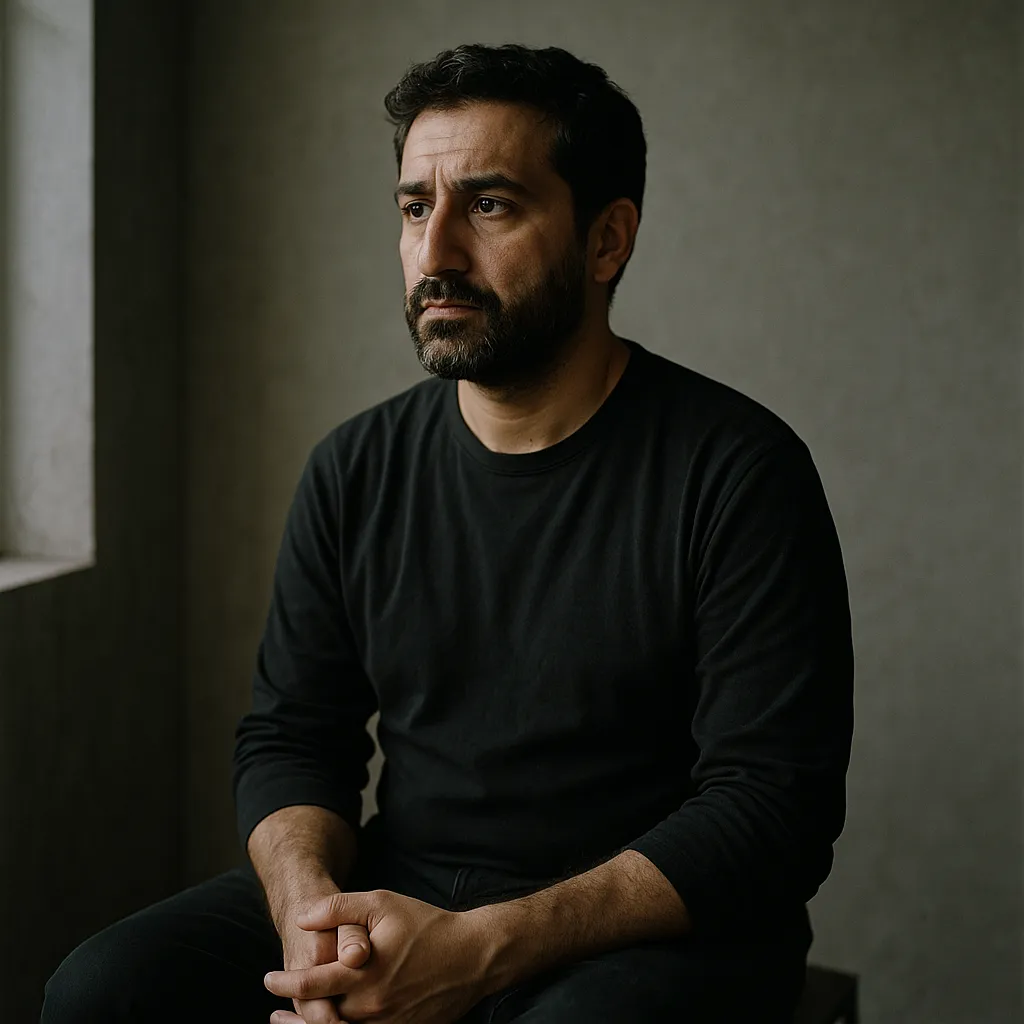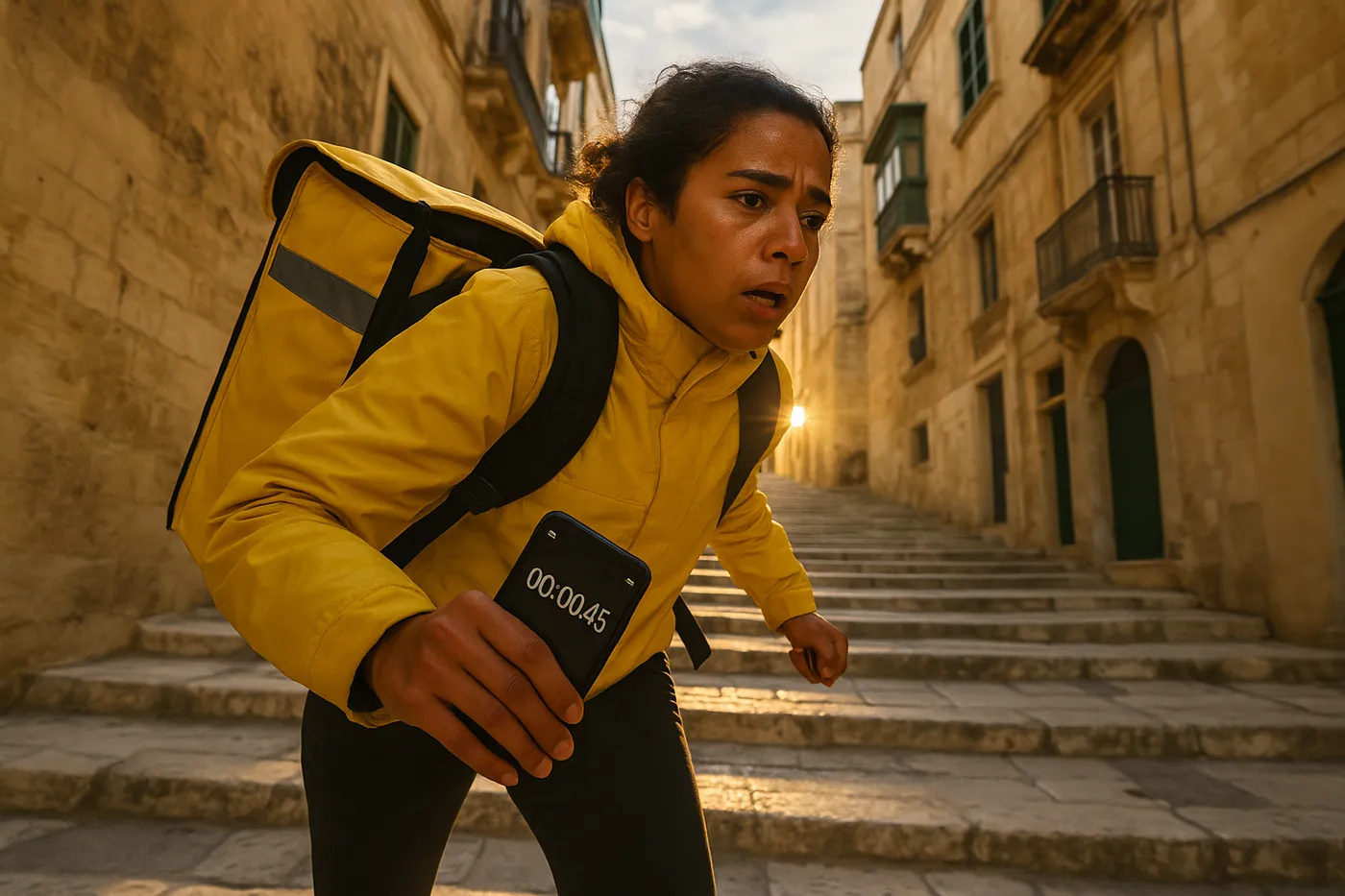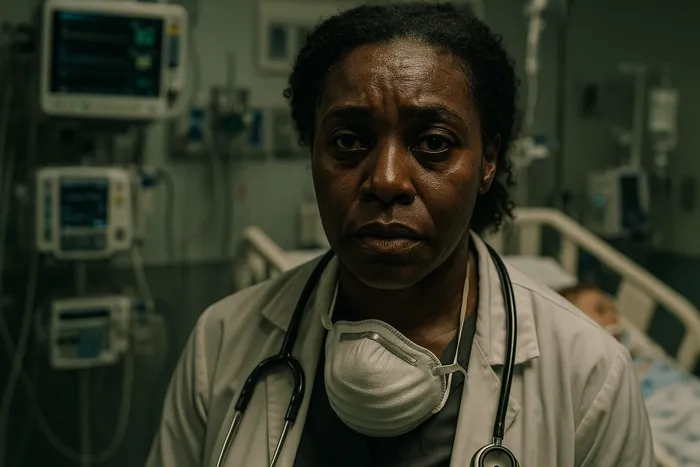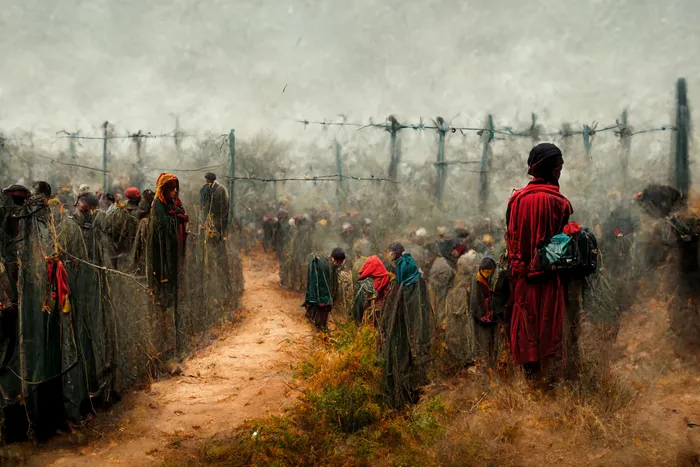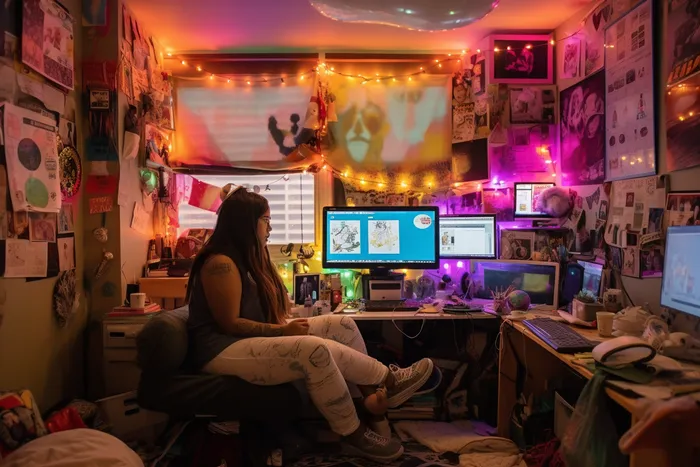The Readers
In an unremarkable apartment in Berlin, Maria sits surrounded by 247 pages of printed data—every click, search, and pause she made on social media over three years. Her face, lit by afternoon light filtering through lace curtains, shows the precise moment of recognition: this is her life, reduced to behavioral predictions and advertising categories. She discovers she was classified as "recently divorced" two weeks before filing papers, her browsing patterns betraying emotional states she thought were private.
This is one frame from "The Readers," a series that transforms the abstract concept of digital rights into visceral human truth. Over eighteen months, I documented people across Europe as they read their personal data files for the first time—massive printouts obtained through GDPR requests that reveal the hidden extent of corporate surveillance. Each portrait captures that moment of reckoning when people confront their "data double," the algorithmic shadow that follows them through digital spaces.
The series began with my own data request. As a Syrian refugee who had fled digital persecution, I understood surveillance's weight, but I was unprepared for the emotional impact of seeing my exile tracked and categorized. Tech companies had assigned me behavioral labels like "politically interested" and "trauma-affected," reducing my survival to marketing segments. The violation felt intimate and systematic simultaneously.
Working with privacy advocates and digital rights organizations, I helped thirty-seven people request their data from major platforms. The legal process itself became part of the story—many were shocked to learn they had the right to see their files at all. When the USB drives and printed documents arrived weeks later, I was there with my camera to witness their first reading.
I chose the classical portrait format deliberately. The Hasselblad's medium format detail captures micro-expressions—the slight furrow between eyebrows when someone discovers their location is tracked even with GPS disabled, the barely perceptible flinch when reading predictions about their children's behavior. Natural window light creates a Rembrandt-like quality that elevates these digital age subjects to the gravity of historical portraiture.
The printed pages become crucial compositional elements, cascading around subjects like evidence in a trial. I worked with each person to select the most revealing passages, printing them large enough to be legible in the final images. These documents aren't props but active participants in the portraits—their presence transforms abstract surveillance into physical reality.
Each sitting unfolded differently. Some subjects laughed nervously at absurd algorithmic predictions. Others fell silent for long periods, processing years of unknowing exposure. The most powerful moments came when people recognized how their most vulnerable periods—job loss, illness, relationship troubles—had been observed and commodified by machines they never knew were watching.
The series reveals digital rights as fundamentally human rights. Privacy isn't about having something to hide; it's about maintaining human dignity in an age when our inner lives have become raw material for surveillance capitalism. These portraits show the moment people realize they've been watched, measured, and predicted without their meaningful consent—and begin to reclaim their digital agency.
Through their faces, we see the human cost of data extraction. But we also see something else: the quiet power of legal rights enacted. Each subject in "The Readers" has already taken the first step toward digital liberation by demanding to see their file. Their expressions contain not just shock but the seed of resistance—the beginning of a movement to reclaim human dignity in digital spaces.
Photographer Bio
Hassan Al-Rashid (b. 1985, Damascus) is a Syrian-German photographer whose work examines technology's role in displacement and surveillance. After documenting Syria's uprising, digital surveillance led to his arrest and eventual exile to Germany in 2015. Discovering GDPR rights as a refugee, he became fascinated with how legal frameworks could reveal hidden power structures.
Al-Rashid's photography bridges classical portraiture with contemporary digital realities, creating intimate moments from technical processes. His work has been exhibited at the Rencontres d'Arles and DOK Leipzig, with pieces in the permanent collection of the Museum of Contemporary Photography in Berlin. He holds an MFA from the Berlin University of the Arts and currently teaches digital ethics workshops alongside his photographic practice.
Image Captions

Photo 1: The Mother
Photo 1: The Mother Berlin, Germany, March 2024. Elena Müller, 34, discovers her pregnancy was predicted by shopping algorithms before she knew herself. Targeted ads for prenatal vitamins appeared in her feed two weeks before she took a pregnancy test. The data reveals how retailers track irregular purchase patterns to identify major life changes, turning intimate biological processes into commercial opportunities. Shot during her lunch break at her kitchen table, surrounded by printouts showing months of behavioral tracking that read like a diary she never wrote.
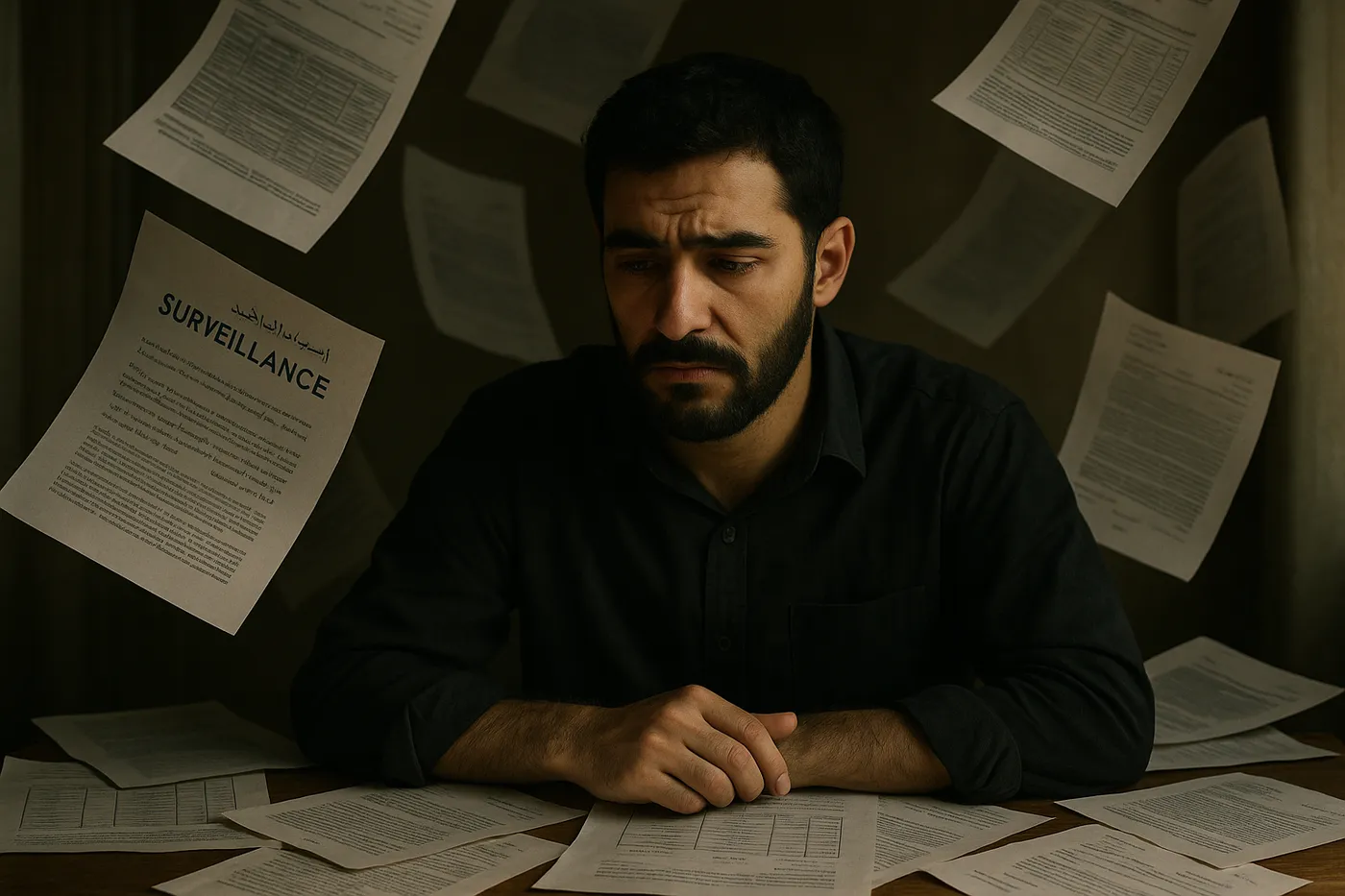
Photo 2: The Activist
Photo 2: The Activist Munich, Germany, June 2024. Ahmad Hassan, 29, a Syrian refugee, reads surveillance data showing his homeland government continued monitoring him through social media platforms even after his escape to Germany. His expression reflects the doubled betrayal of discovering that tech companies shared his data with the regime he fled. The papers scattered around him contain evidence of how authoritarian surveillance extends beyond borders through corporate partnerships, making digital exile incomplete.
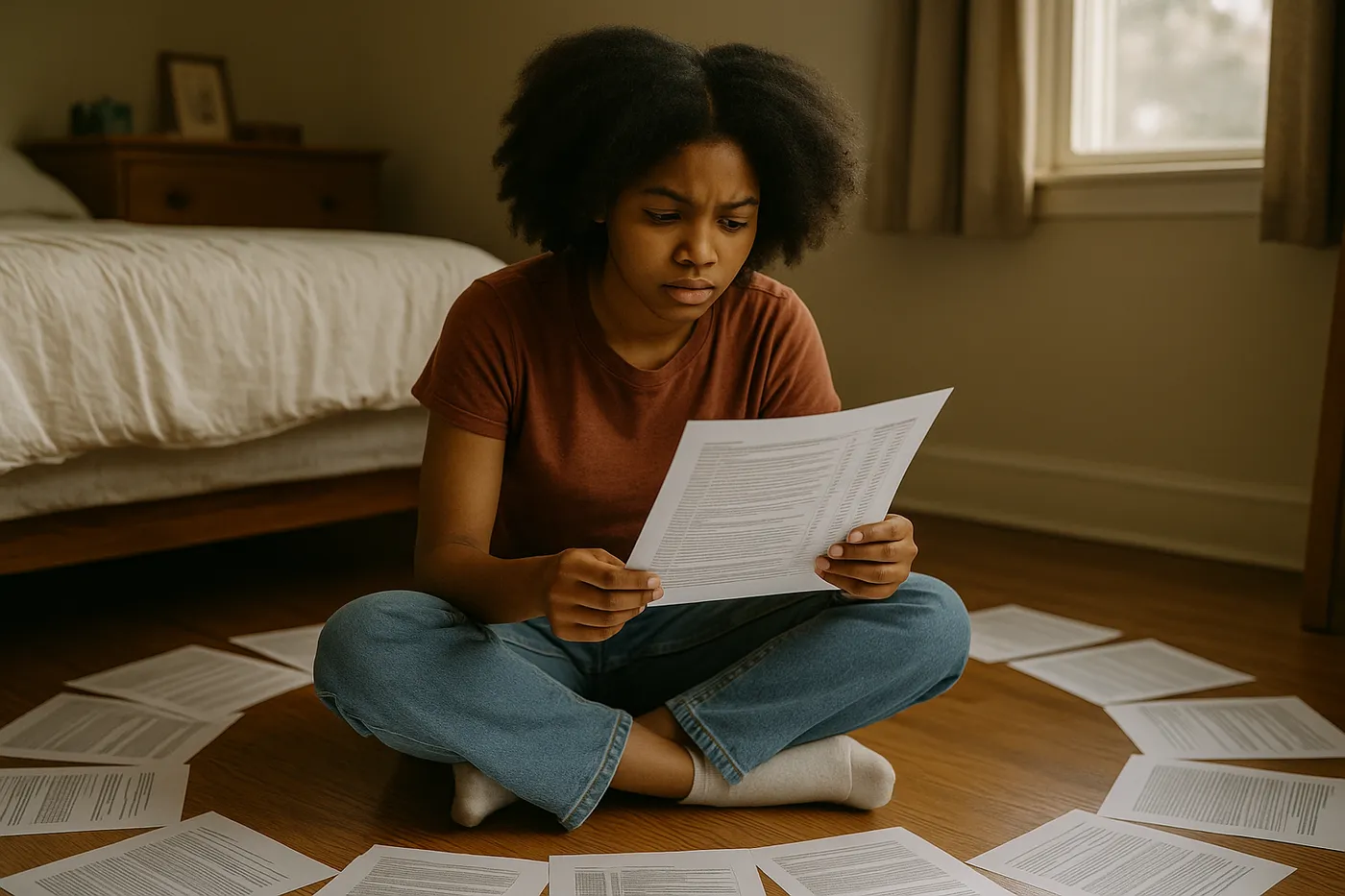
Photo 3: The Teenager
Photo 3: The Teenager Amsterdam, Netherlands, September 2024. Zara Okafor, 17, sees her entire adolescence tracked since age 13—her first search queries, location data from walking to school, even mood predictions based on music listening patterns. The data file spans critical years of identity formation, revealing how platforms documented her transition from child to young adult without her understanding. Her parents helped her request the file as part of a digital literacy project, but none of them anticipated the emotional weight of seeing childhood commodified.
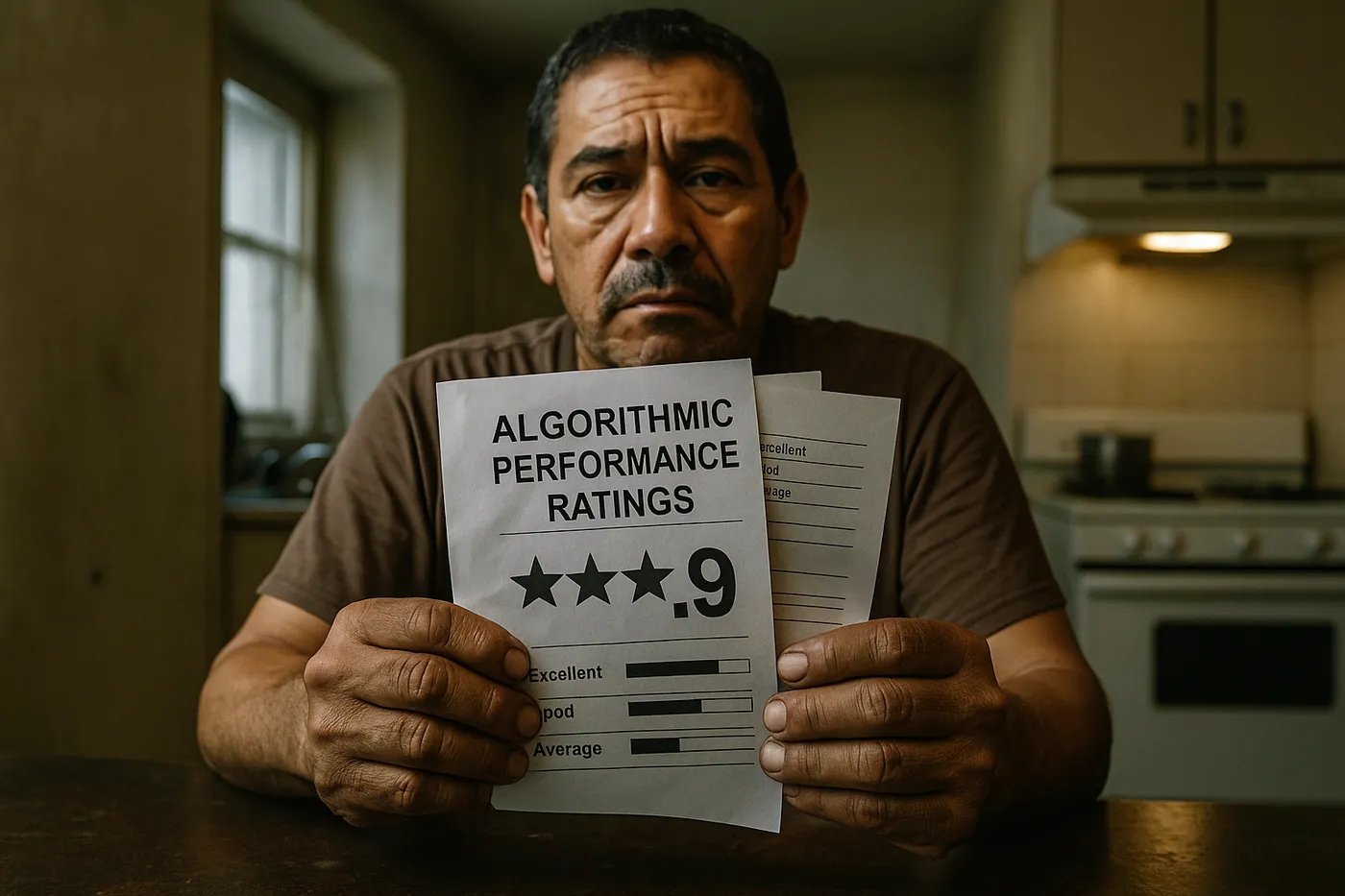
Photo 4: The Worker
Photo 4: The Worker Barcelona, Spain, May 2024. Carlos Rodriguez, 41, an Uber driver, reads algorithmic assessments reducing his human complexity to performance ratings and predictive scores. The data shows how every route, every pause, every interaction with passengers has been measured and monetized. His weathered hands hold papers detailing how his economic survival depends on algorithms that rate his worthiness to work, revealing the dehumanizing logic of platform capitalism.
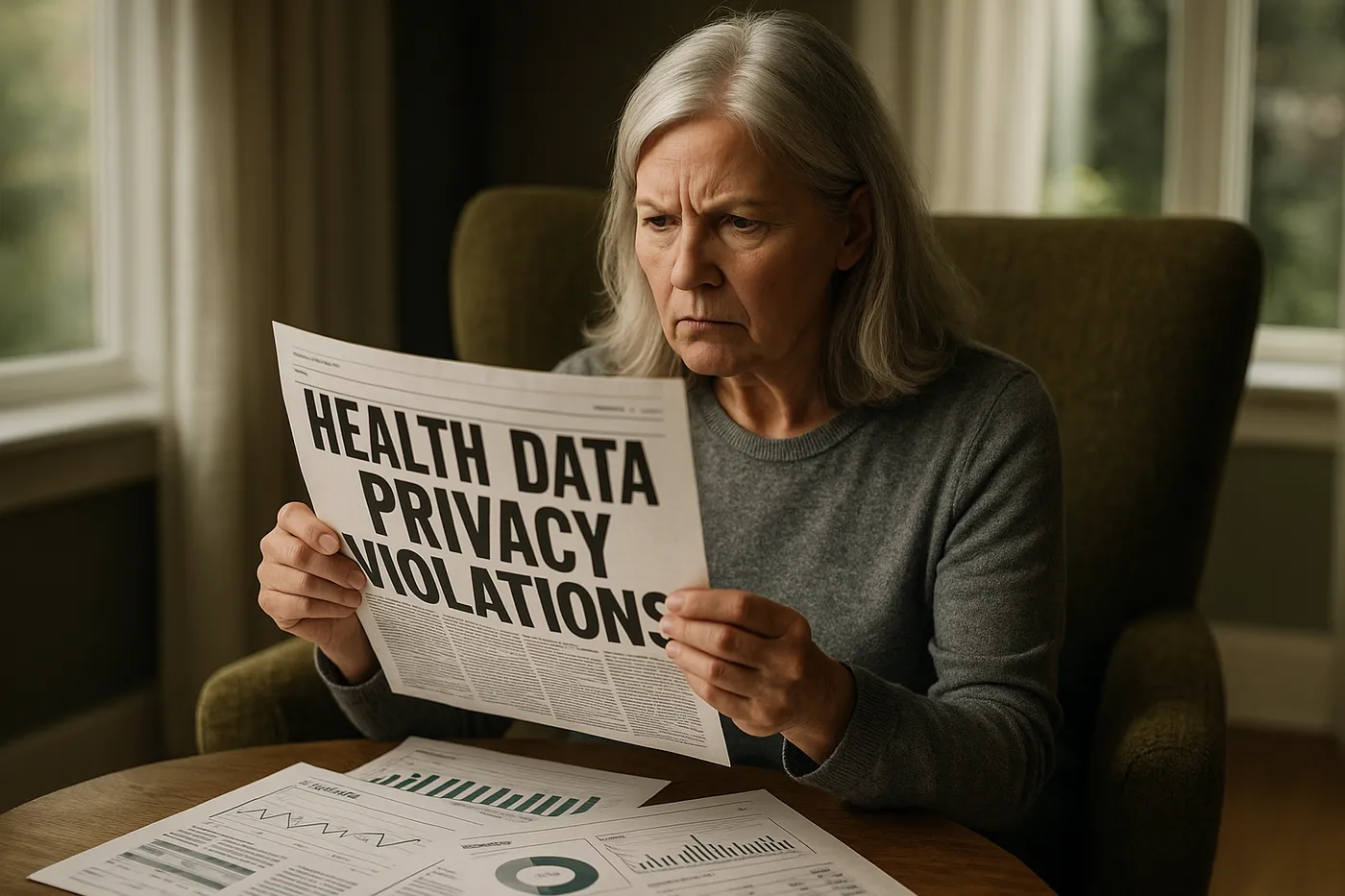
Photo 5: The Patient
Photo 5: The Patient Stockholm, Sweden, July 2024. Ingrid Larsson, 58, discovers her health conditions were shared with data brokers through fitness app permissions she didn't understand. Her chronic arthritis, tracked through step patterns and activity levels, became marketing data sold to insurance companies and pharmaceutical advertisers. The violation of medical privacy through seemingly innocent wellness apps reflects how health surveillance operates below the threshold of awareness.
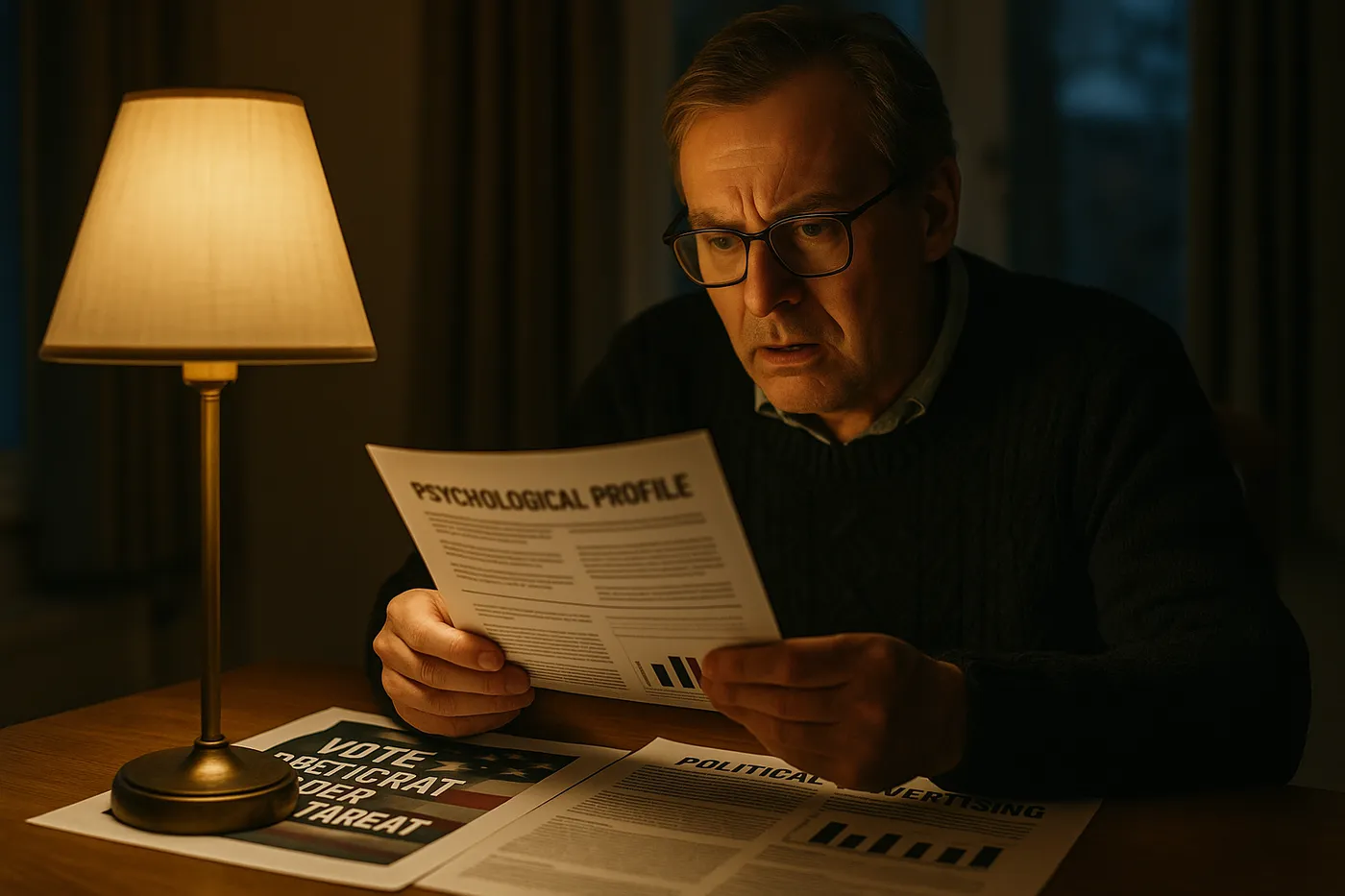
Photo 6: The Voter
Photo 6: The Voter Vienna, Austria, November 2024. Thomas Weber, 45, sees how his political preferences were profiled based on browsing history and targeted with manipulative content during election season. The data reveals micro-targeting campaigns designed to influence his vote through psychological profiling, showing how democracy is undermined through surveillance-based manipulation. His expression captures the realization that his political choices may not have been as free as he believed.
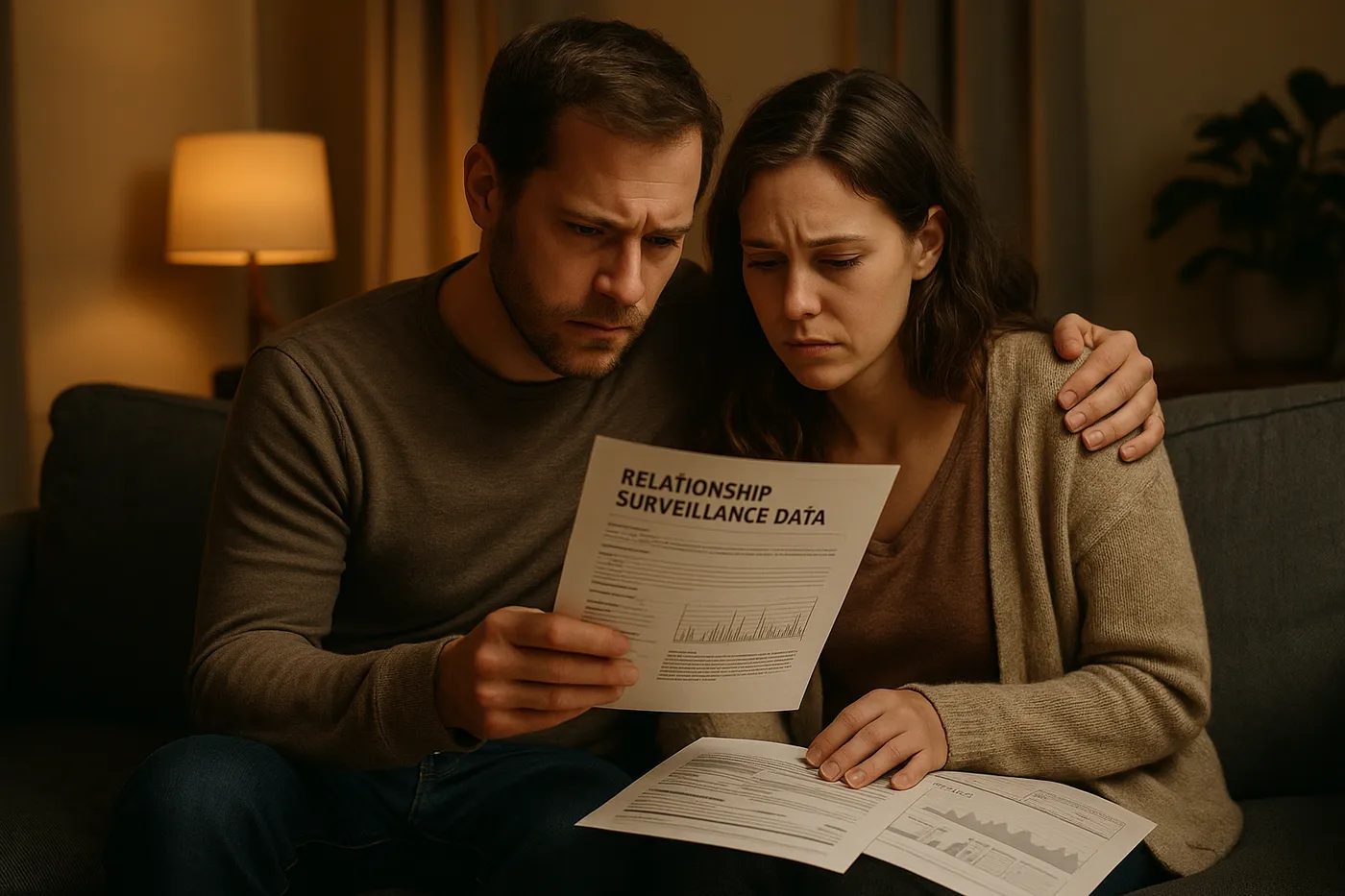
Photo 7: The Couple
Photo 7: The Couple Copenhagen, Denmark, August 2024. Anna and Lars Nielsen, together for 12 years, read how their relationship was commodified—their shared location data, coordinated purchases, and communication patterns analyzed to target them with couples' products and relationship advice. The most intimate aspects of their partnership became data points in algorithms designed to extract value from love itself. Their quiet closeness in the frame contrasts with the cold calculation of the documents spread before them.
Photo Prompts

Photo 1: The Mother
Photo 1: The Mother Young woman in her 30s with short brown hair sitting at a modern kitchen table, surrounded by scattered printed documents, holding pregnancy-related advertisements in her hands with expression of shocked recognition, natural afternoon light streaming through window behind her, medium shot at eye level, shot on Hasselblad X2D with 90mm f/2.5 lens, shallow depth of field with documents in foreground and background, warm color palette with soft shadows, rule of thirds composition, intimate domestic setting, World Press Photo award winning photojournalism.

Photo 2: The Activist
Photo 2: The Activist Middle Eastern man in late 20s with dark beard sitting at wooden desk, surrounded by cascading pages of surveillance data, expression of profound betrayal and sadness, natural window light creating Rembrandt lighting on his face, shot on Hasselblad X2D with 90mm f/2.5 lens, medium format detail capturing micro-expressions, papers spread around him showing Arabic and English text, muted color palette emphasizing serious mood, documentary portrait style, World Press Photo winning photography.

Photo 3: The Teenager
Photo 3: The Teenager Young Black woman aged 17 sitting cross-legged on bedroom floor, surrounded by years of printed digital tracking data, expression mixing curiosity and concern as she reads about her tracked adolescence, soft natural light from bedroom window, shot on Hasselblad X2D with 90mm f/2.5 lens, environmental portrait showing personal space, papers forming a circle around her, warm but serious lighting, coming-of-age documentary style, award-winning photojournalism.

Photo 4: The Worker
Photo 4: The Worker Hispanic man in his 40s with weathered hands holding algorithmic performance ratings, sitting in small apartment kitchen, expression of quiet dignity mixed with frustration, harsh overhead lighting mixed with window light, shot on Hasselblad X2D with 90mm f/2.5 lens, close-up hands holding papers with face in background, emphasizing working-class struggles with technology, documentary realism style, World Press Photo standard photography.

Photo 5: The Patient
Photo 5: The Patient Scandinavian woman in her late 50s with silver hair reading health data privacy violations, sitting in comfortable living room chair, expression of violation and anger, soft natural light from large windows, shot on Hasselblad X2D with 90mm f/2.5 lens, medium shot showing her surrounded by medical and fitness tracking printouts, classical portrait lighting, serious and contemplative mood, professional documentary photography, award-winning photojournalism.

Photo 6: The Voter
Photo 6: The Voter Middle-aged European man with glasses reading political profiling data at dining room table, expression of disturbed realization, evening light from table lamp mixing with natural light, shot on Hasselblad X2D with 90mm f/2.5 lens, documents spread showing political advertisements and psychological profiles, serious and concerned facial expression, democratic values under threat theme, World Press Photo winning documentary style.

Photo 7: The Couple
Photo 7: The Couple Couple in their 30s sitting close together on couch reading shared relationship surveillance data, expressions of discomfort and intimacy violated, warm living room lighting from multiple sources, shot on Hasselblad X2D with 90mm f/2.5 lens, medium shot showing both figures and documents spread between them, tender yet troubled mood, invasion of privacy theme, professional portrait style, award-winning photojournalism, World Press Photo quality.
Photographer Portrait Prompt
Middle Eastern man in his late 30s with dark hair and beard, wearing simple dark clothing, thoughtful and serious expression reflecting experience with surveillance and exile, seated in minimalist studio setting, natural light creating dramatic side lighting, professional portrait style, shot with medium format camera, dignified and contemplative mood, photojournalist aesthetic, professional headshot for exhibition materials.

